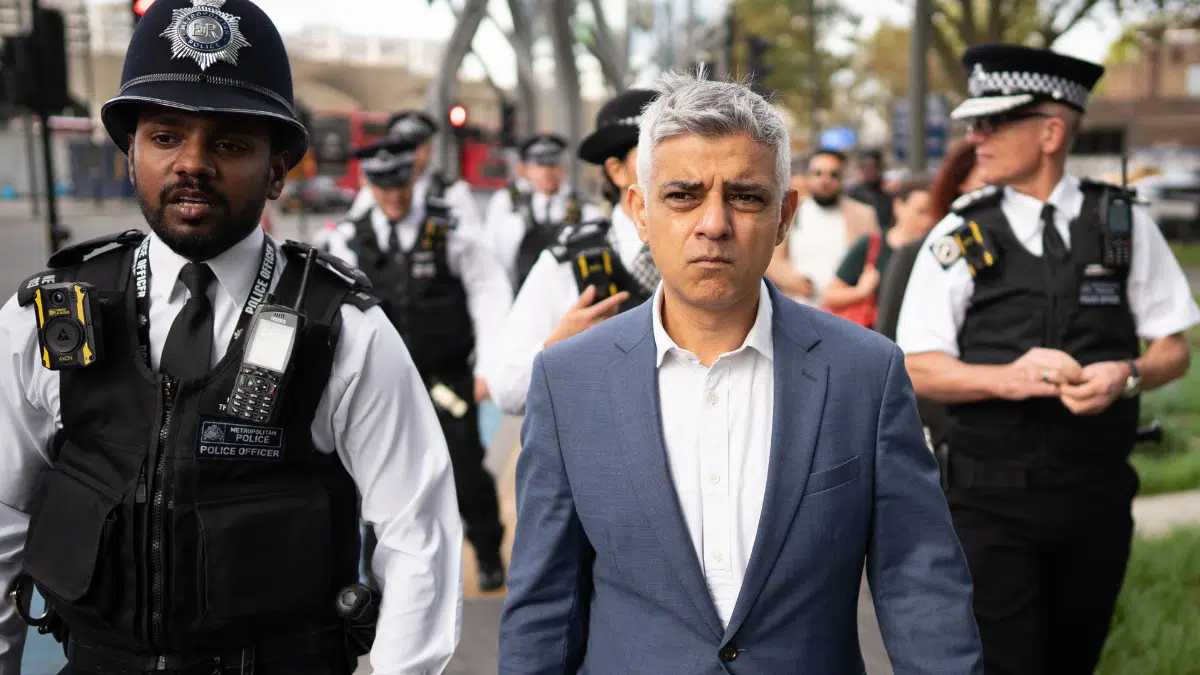By Fernando Beltrán
The United Kingdom is embracing multiculturalism by leaps and bounds, to the point that in England’s capital, London, the inhabitants of British origin barely exceed a third of the city’s total.
This fact emerges from the information revealed by the United Kingdom’s Office for National Statistics, the public body responsible for compiling official statistics in the country.
This body is also responsible for conducting the official census of England and Wales every ten years.

The data produced by the last of them, in 2021, are eloquent: in some areas of England, the British are already beginning to be a minority.
“We have published new data from the 2021 Census on the ethnic groups of usual residents and the ethnic composition of households in England and Wales,” the institution announced on its official Twitter account on Tuesday.
81.7% of usual residents in England and Wales, they said, identified their ethnic group within the “white” category.
In 2011, when the previous census was taken, they represented 86%.
On the other hand, being part of the “white” group, 74.4% of the population identified themselves as “English, Welsh, Scottish, Northern Irish or British.”
The percentage of the country’s traditional population has been plummeting in recent decades: in 2011, the British accounted for 80.5%; in 2001, 87.5%.
The following ethnic group, “Asian, Asian British, or Asian Welsh, ” would represent 9.3% of the population.
This is reflected in the country’s authorities:
The Prime Minister of the United Kingdom, Rishi Sunak, is of Indian origin; the Mayor of London, Sadiq Khan, has Pakistani origins.
The significant fact is that apart from the whites and, therefore, the British – the only large ethnic group not growing – the rest are growing steadily.
The areas with the highest percentage of inhabitants belonging to ethnic groups other than British are in the large cities and their surroundings, such as Manchester, Leeds, Birmingham, Leicester, and Greater London, the gigantic metropolitan area of the country’s capital.
The case of London is the most significant, leading the country’s ethnic diversity ranking.
The capital’s British population currently represents 36.8% of the city’s total, narrowly surpassing one-third. In 2011, it was 44.9%.
There are municipalities in the city where being ethnically British means belonging to a minority.
This is the case of Newham, to the east of the metropolis, where the original population represents 14.8% of the total.
The majority come from Asia: 15.9% come from Bangladesh, 11% from India, and 12.7% from Pakistan, to cite a few examples.
The National Bureau of Statistics also provided data on religion.
As you may have gathered, Christianity, the traditional religion in the UK, is also losing ground.
For the first time, less than half of the country considers itself Christian.
The country’s residents who consider this religion their own have gone from 59.3% in 2011 to 46.2% in 2021, losing 5.8 million adherents in 10 years.
Second place goes to those who say they have no religion, the fastest-growing group.
In 2011, these represented 25.2% of the population; in 2021, they were 8.1 million more and already represented 37.2%.
The third group is Islam.
In 2011, 4.9% of the inhabitants of Wales and England belonged to this religion; 10 years later, 6.5%, four million people, do so.
With information from LGI

